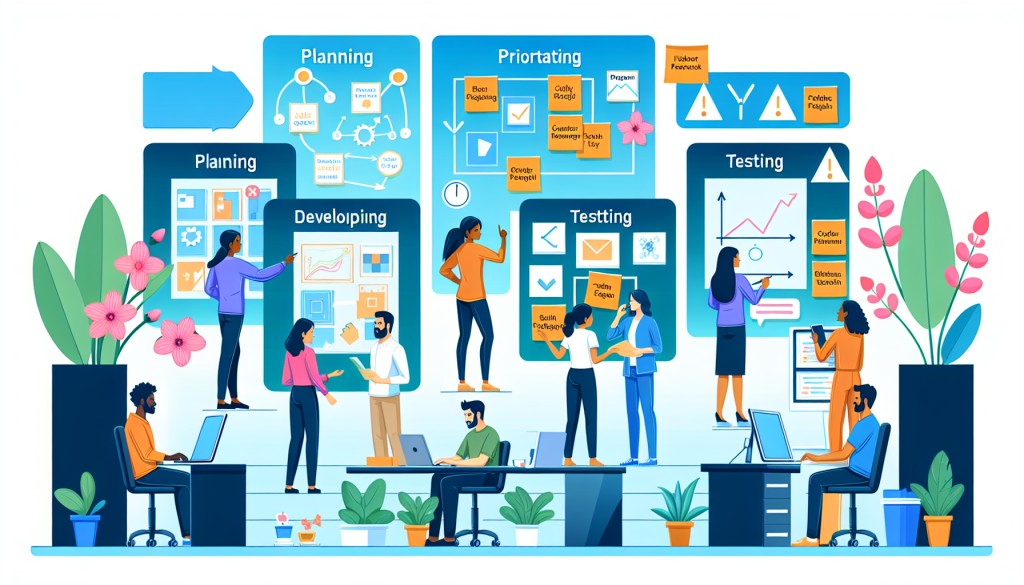Agile Product Management is a methodology that has traditionally been associated with the tech industry, but its principles and practices are increasingly being adopted by non-tech industries as well. Agile Product Management vs. Traditional Project Management . This approach to product development focuses on collaboration, adaptability, and customer feedback, with the aim of delivering products that meet customer needs and deliver value quickly and efficiently.
There are several benefits to adopting Agile Product Management in non-tech industries. One of the key advantages is the ability to respond quickly to changing market conditions and customer needs. By breaking down projects into smaller, more manageable chunks, teams can adapt and pivot as needed, ensuring that they are always working on the most valuable features and improvements.
Another benefit of Agile Product Management is increased collaboration and communication within teams. By working in short, focused sprints and holding regular stand-up meetings, teams can stay aligned on goals and priorities, leading to more efficient and effective product development.
Agile Product Management also encourages a customer-centric approach to product development. By involving customers early and often in the development process, teams can gather feedback and make improvements based on real user needs and preferences. This leads to products that are more likely to succeed in the market and meet customer expectations.

However, there are also challenges to implementing Agile Product Management in non-tech industries. One of the main challenges is changing the mindset and culture of traditional, hierarchical organisations. Agile requires a shift towards more collaborative, self-organising teams, which can be difficult for some organisations to adopt.
Another challenge is managing expectations around timelines and deliverables. Agile Product Management focuses on delivering value quickly and iteratively, which can be challenging for stakeholders who are used to traditional, linear project management approaches. Managing expectations and educating stakeholders on the benefits of Agile is crucial for successful implementation.
In conclusion, Agile Product Management offers many benefits for non-tech industries, including increased adaptability, collaboration, and customer focus. While there are challenges to overcome in adopting this methodology, the potential rewards in terms of improved product development and customer satisfaction make it a valuable approach for any industry.